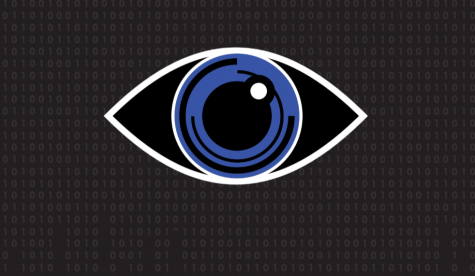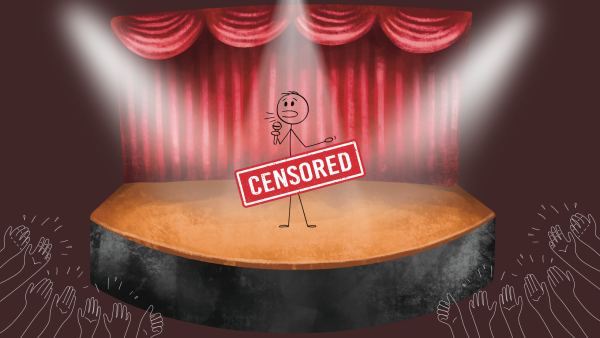An open letter to anti-vaxxers
Sumner Wallace ’20 addresses how the spread misinformation has contributed to the anti-vaxx movement.
Sumner Wallace ’20 discusses the recent misinformation surrounding vaccinations due to the spread of fake news and social media and answers common questions anti-vaxxers may have.
Dear anti-vaxxers,
I believe you have been done a disservice. People, like myself, who believe in the importance of vaccinations have come after you on the internet and made you out to be the villains of the recent measles outbreaks in Washington state and New York. You have been sorely mislabeled and for that I apologize. I think what many of us have failed to realize is that we are all scared parents and community members who are trying to do what’s best for our children.
I would argue that the real villain in this controversy is fake news and the spread of misinformation. Fake news was a hot button issue during the 2016 election. However, after the strong reaction of many major news outlets and social media sites to conspiracy theorists and users spreading falsities it was quickly pushed out of the public consciousness.
The fixes these media sites provided, such as blocking users from their advertising networks, were necessary, but not enough. Our short attention spans and belief that fake news was somewhat “solved” meant that a wound in need of stitches only got a few Dora Band-Aids and a kiss to make it feel better.
Our short attention spans and belief that fake news was somewhat “solved” meant that a wound in need of stitches only got a few Dora Band-Aids and a kiss to make it feel better.
— Sumner Wallace '20
Misinformation concerning vaccines and other medical issues has continued to spread widely, especially on Facebook. An eighteen year old boy named Ethan Lindberger—who’s mother is an anti-vaxxer—recently testified before the Senate Committee on Health, Education, Labor and Pensions saying that his mother’s beliefs were perpetuated by social media and that the information she used to support her views had no real attribution. Luckily, Facebook has announced that it will be doing its part to combat falsehoods by blocking ads.
However, you can help solve this problem as well. I know that the government doesn’t always seem trustworthy. Scandals like Watergate and Hillary Clinton’s emails don’t always paint politicians in the best light; and with the advent of super PACs it can feel like corporations are running the country. Despite this, I ask you to put less faith in Facebook and more faith in the government organizations, like the CDC, that are in place to keep you safe.
The CDC’s one goal is to protect public health in the US. Yes, like any part of the government it has had issues with corruption, but for the past seventy years it has done good work to try and eradicate many infectious diseases. So anti-vaxxers, I encourage you to be skeptical. Ask lots of questions. However, don’t let yourselves be fooled by misinformation or conspiracies. Don’t believe everything you read on Facebook. Check your sources, do your research, keep an open mind and trust that organizations like the CDC have your best interests at heart.
Sincerely,
Sumner, your pro-vaxxer friend
P.S. If you still have questions, here is a little hypothetical Q+A to help you out.
Q: Do vaccines cause Autism?
A: No. Several major studies have been conducted to test the hypothesis that vaccines may contribute to the development of Autism. None of the studies found any link between the two.
Q: Are infant immune systems able to handle so many vaccines?
A: Yes. Theoretically an infant’s immune system could handle 10,000 vaccines at the same time, therefore the 14 vaccines that infants generally receive are comparatively nothing.
Q: Do vaccines contain unsafe toxins?
A: Often vaccines do contain trace amounts of substances such as formaldehyde, however our own body produces more formaldehyde than is contained in a vaccine.
Q: Can vaccines infect a child with the disease it’s trying to prevent?
A: The Oral Polio Vaccine could, however it is no longer in use. There have been no other vaccines known to do this, so a safe answer is no. Children can exhibit symptoms after a vaccine, but these are not of the disease, but of the immune systems response.
Q: Are vaccines worth the risk?
A: Yes, absolutely! Deaths due to vaccines are so rare that the number cannot be calculated, and there has never been a credible study linking vaccines to long term health issues. Herd immunity is a wonderful thing but it can’t protect people like pregnant women, the elderly, and those with poor immune systems who can’t vaccinate, if people who can vaccinate stop vaccinating.
Your donation will support the student journalists of West High School. Your contribution will allow us to purchase Scholarship Yearbooks, newsroom equipment and cover our annual website hosting costs.

Sumner Wallace is a senior and the columns editor. Although this is her first year on staff, she has been a guest writer and avid supporter of the WSS...

















